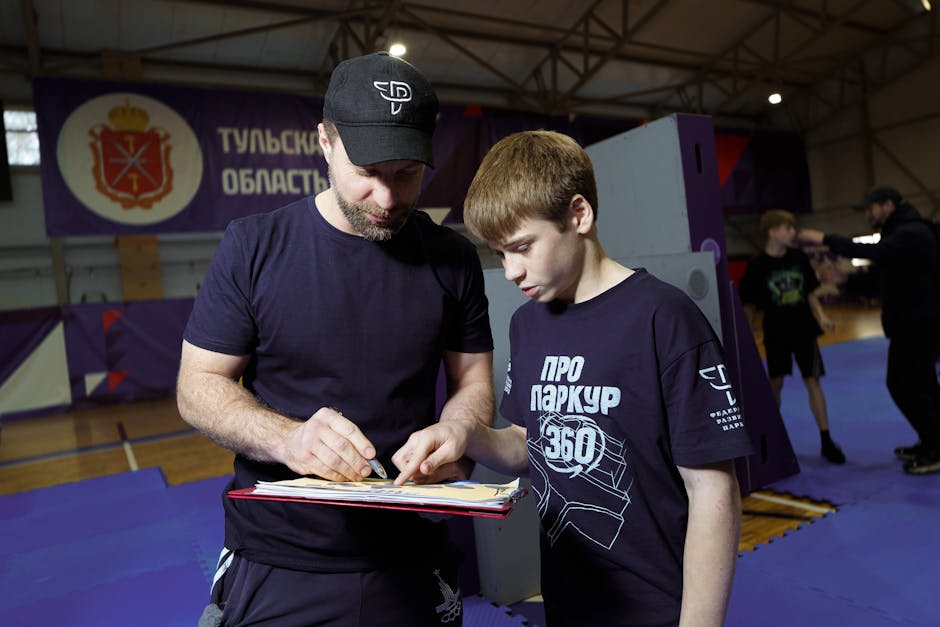How to Learn AI: A Beginner’s Step-by-Step Guide
How to Learn AI: A Beginner’s Step-by-Step Guide
Understanding how to learn AI can seem daunting, but with a step-by-step approach, it becomes manageable and exciting. To learn AI, you should start with basic concepts, enroll in courses, and practice regularly using AI tools. By consistently studying and applying your knowledge, you can master AI skills over time. According to Gartner, AI adoption grew by 270% in four years, showcasing the growing importance of AI skills.
Introduction
Artificial Intelligence (AI) is reshaping the world, from self-driving cars to virtual assistants. With high demand for AI skills, learning AI is a rewarding path. Whether you're a beginner or have some technical background, this guide will navigate you through the steps to master AI effectively.

how-to-learn-ai-guide. Photo by Artem Korsakov on Pexels
HOW to Learn AI: Step-by-Step Guide
1. Understand the Basics
Begin with foundational concepts. Learn what AI, machine learning, and data science mean. Familiarize yourself with terminology such as neural networks, algorithms, and models.
🎯 Quick Answer: Start with basic AI terminology and concepts.
2. Choose the Right Course
Select online courses that match your level. Websites like Coursera, edX, and aicourseusa.com offer comprehensive AI courses.
Example: Coursera’s AI for Everyone by Andrew Ng is an excellent starting point.
3. Learn Programming Languages
Proficiency in languages like Python and R is essential. Python is particularly popular due to its simplicity and rich libraries like TensorFlow and PyTorch.
ℹ️ Key Point: Python is the preferred language due to its extensive AI library support.
4. Study Mathematics and Statistics
A sound understanding of statistics, linear algebra, and calculus is crucial. These form the backbone of most AI algorithms.
Tools Needed: Khan Academy for math courses.
5. Explore Machine Learning
Delve into machine learning algorithms like regression, clustering, and classification models.
6. Practice with Projects
Practical application is key. Engage in projects that’ll allow you to use and test your skills. Kaggle offers competitions to gain hands-on experience.
💡 Pro Tip: Start with simple datasets before tackling complex ones.
7. Utilize AI Tools and Libraries
Learn to use tools like TensorFlow, PyTorch, and scikit-learn. These libraries simplify creating and deploying AI models.
8. Join AI Communities
Engage with communities on platforms like GitHub, Reddit, or Stack Overflow. Collaboration brings exposure to diverse problems and solutions.
9. Keep Up with Latest Developments
AI is fast-evolving. Follow AI influencers, read research papers, and attend webinars to stay updated.
Timeline Expectation: Basic proficiency in 3-6 months with consistent learning and practice.
⚠️ Common Mistake: Neglecting mathematical foundations can hinder progress.
WHY Follow This Approach?
This methodology is structured yet flexible, adapting to various learning paces.
Benefits of This Method
- Comprehensive Foundation: Builds a robust understanding before diving into complex topics.
- Hands-On Learning: Projects and practice foster practical skills.
- Community Engagement: Networking aids learning through community insights.
Success Stories
Several AI professionals, like the renowned Andrew Ng, emphasize the importance of continuous practice and community learning for success.
WHAT You’ll Achieve
By following this guide, you'll develop a solid grasp of AI concepts, programming skills, and project experience.
Skills You'll Gain
- Programming in Python
- Understanding AI/ML algorithms
- Developing AI models
What to Expect Next
Expect to tackle advanced projects and prepare for AI-driven career opportunities. Consider deeper specializations like natural language processing or computer vision.
Additional Resources: AI blogs, podcasts, and tutorials on AI course platforms.
Engagement Elements
Case Study: Google AI’s Project Google used machine learning to predict medical outcomes, showcasing AI's capability in healthcare. From reducing blindness rates to predicting heart diseases, AI plays a crucial role.
Personal Anecdotes: A Beginner’s Journey John, an AI enthusiast, started with zero knowledge. Within a year, he transitioned from online courses to a data scientist role by following a similar structured path.
⚠️ Common Mistake: Overloading on advanced concepts early can lead to burnout.
💡 Pro Tip: Balance theory with practical tasks to keep learning engaging.
FAQ Section
1. What is the first step to learn AI?
🎯 Quick Answer: Start with understanding basic AI concepts and terminology.
2. Do I need a computer science background?
No, a strong willingness to learn and basic math skills are sufficient to start.
3. How long does it take to learn AI?
Depending on dedication, basics can be learned in 3-6 months.
4. Are online courses enough?
Online courses, paired with projects and community interaction, are effective.
5. What is the role of mathematics in AI?
Math supports understanding of algorithms and models essential for AI.
6. Which programming language is best for AI?
Python is widely preferred due to its simplicity and extensive library support.
7. Can I learn AI for free?
Yes, many resources and communities offer free learning paths and tips.
Call to Action
Ready to embark on your AI journey? Check out our AI Salary Calculator to see career potential, take our AI Career Quiz to find your path, and read our course reviews to choose the right start. Don’t wait, start today and embrace the future of AI.